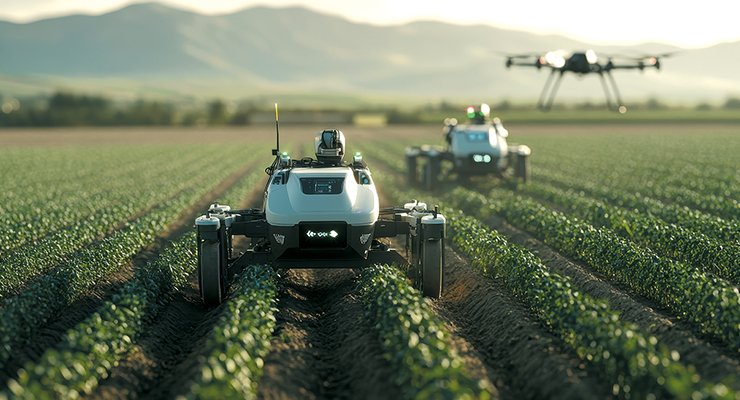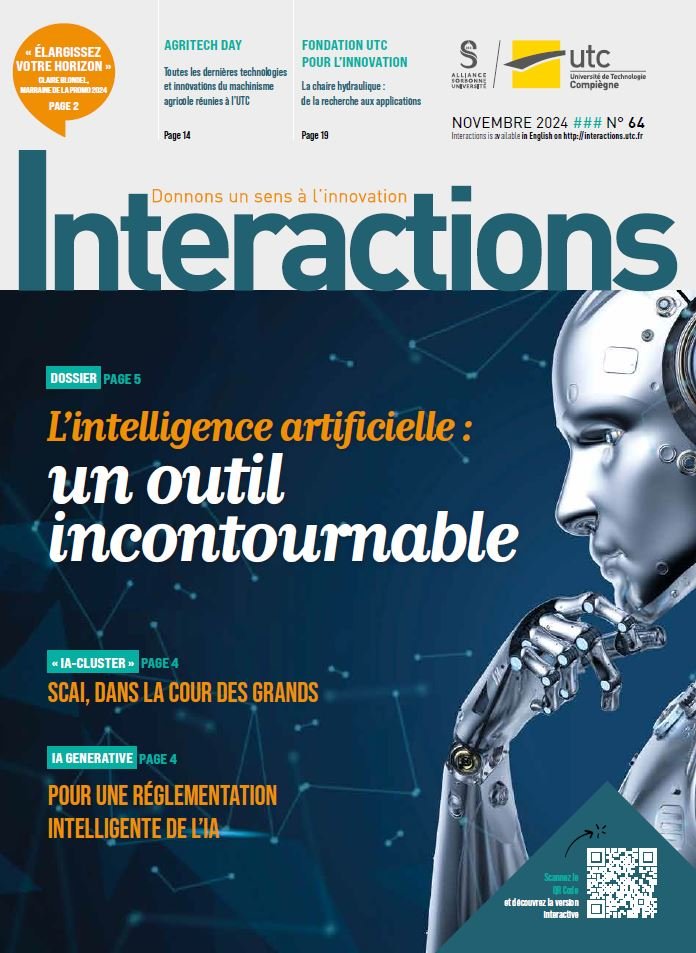The latest technologies and innovations in agricultural machinery at UTC

The 7th Agritech Day was held last Thursday, October 24, 2024 at UTC. This international conference on technologies and solutions for efficient, sustainable agriculture attracted 220 participants and experts from all over the world.
Agritech Day, organized by Axema and UTC, brings together industry experts, academics and researchers from around the world to share their expertise on recent innovations in the agricultural sector. The aim is to explore the latest technologies in intelligent agriculture and push back the frontiers of agricultural robotics. As the agricultural sector moves towards more sustainable practices, decarbonizing farm equipment is a crucial step. This year’s Agritech Day featured a number of presentations, including one on the digital simulation model of a multi-purpose agricultural tractor. Antti Lajunen from the University of Helsinki presented an advanced simulation model for evaluating alternative, environment-friendly power-trains. Mathieu Beaurain from CETIM talked about design and development methods for electrically powered machines. François Brochard from In Situ talked about modernizing traditional agricultural equipment with electric solutions. He also discussed cutting-edge advances in sensors and detection systems. Clément Moignard from INRAE and Philippe Bonnet from Secom Engineering unveiled their latest research on safety systems, crucial for the safe deployment of autonomous machines in agriculture. “There are many very interesting topics indeed, such as safety at work, prevention and ergonomics. As coorganizers of this conference, we are also involved as “biomechanists”. Our human-centred approach aims to develop solutions that are durable, reliable and safe for users. Agriculture, an integral part of human existence, is a perfect illustration of our commitment to the well-being of people in their working environment,” emphasizes Dr Khalil Ben Mansour, with his PhD in biomechanics at UTC, in charge of a research project on the biomechanical analysis of movement.
A greener, more technologically advanced agricultural future
These expert presentations not only served to highlight current innovations, but also charted the course for future progress in reducing the carbon footprint of agricultural machinery and improving precision farming with sophisticated sensors. Johan Mauny from Secom Engineering, for example, presented his advanced collisionfree trajectory planner for complex agronomic tasks in relation to fields with permanent crops. Lionel Léveillé from Sky Agriculture and Honoré Bacquenois from Naïo Technologies discussed their collaborative efforts to integrate robotics into field crop management, improving efficiency and sustainability. For her part, Dr Ikram Abdouttalib, PhD in Agricultural Economics, Head of Foresight and International Development at Axema, addressed the issue of sustainable circular agriculture. “In 2019, agriculture accounted for 19% of greenhouse gas emissions in France. The agricultural machinery sector accounts for 2.3% of these emissions in France and 1% in Europe. The aim is to reduce emissions by 18% by 2030 and 46% by 2050. Over the past 50 years, farms have evolved and will continue to do so in the future. In 1970, there were 1.6 million farms. There was a marked drop in the 1980s with the intensification and concentration of farms. In 2050, projections show 240,000 farms with 800 000 tractors still running on non-road diesel. We’ll be talking about three million tonnes of CO2 emissions. The planned transition will come with a cost. Who will bear it? Will it be the farmers, or the States, which will have to renew part of the fleet? Remember that the average age of a tractor is 28 years, that of a combined harvester 25 years. UTC students were also present at the conferences, well aware of the challenges facing the agricultural sector in the future, and which these future engineers intend to tackle.
DataXChange and TIM technology
During the Smart Farming sessions in the afternoon, the audience listened to discussions on the integration of sophisticated technologies in agriculture, focusing on decentralized and centralized technologies combined in a single “DataXChange” system. Sébastien Schroeder from Kuhn Group unveiled this unified system that integrates decentralized and centralized technologies, improving data exchange and decision-making processes in agricultural operations. Fulvio Zerbino of Kubota in Europe discussed advances in TIM (Tractor Implement Management) technology, which pave the way for autonomous manure spreading, improving the efficiency and precision of field applications. These discussions provided a better understanding of how technology can streamline farming practices and increase efficiency.
KD




